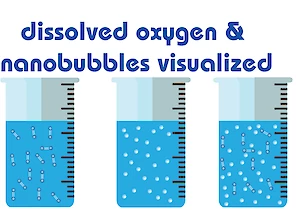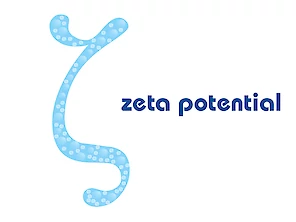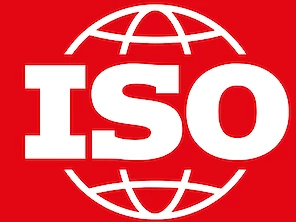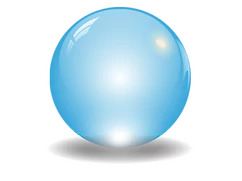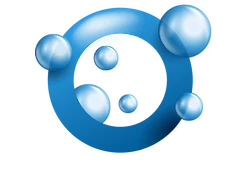ozone
Ozone Gas Concentration Unit Conversion Table Explained

Discover everything about ozone technology: unit conversions, generators, nanobubble mixers, and sensors for water treatment and disinfection. Acniti’s ozone page explains practical applications for aquaculture, food, pharma, and environmental safety. Explore innovative solutions for accurate ozone measurement and eco-friendly purification to optimize your processes and improve water quality. Read on for in-depth industry insights and product details.
Ozone concentration is measurable in several different units depending on the application, industry, or measurement environment. Here is an explanation of the conversion table found on the Acniti website, which shows conversions between commonly used ozone concentration units:
| G/nM3 | PPM | VOL% | WT% |
| 1 | 466.666667 | 0.04666667 | 0.06998367 |
| 10 | 4,666.66667 | 0.46666667 | 0.69837047 |
| 100 | 46,666.6667 | 4.6666667 | 6.84039088 |
| 0.00214286 | 1 | 0.0001 | 0.00015 |
| 0.02142857 | 10 | 0.001 | 0.00149999 |
| 0.21428571 | 100 | 0.01 | 0.01499925 |
| 21.4285714 | 10,000 | 1 | 1.49253731 |
| 214.285714 | 100,000 | 10 | 14.2857143 |
| 428.571429 | 200,000 | 20 | 27.2727273 |
| 14.3334926 | 6,688.96321 | 0.66889632 | 1 |
| 147.783251 | 68,965.5172 | 6.89655172 | 10 |
| 306.122449 | 142,857.143 | 14.2857143 | 20 |
| 2142.85714 | 1,000,000 | 100 | 100 |
Units Explained
G/nm³ (grams per normal cubic meter):
- A measure of how many grams of ozone are present in one cubic meter of air at standard temperature and pressure.
- Commonly used in industrial applications and by engineers designing ozone systems.
PPM (parts per million):
- Expresses the number of ozone molecules per million air molecules.
- Widely used for measuring ozone in air, especially for environmental, safety, and regulatory monitoring.
VOL% (volume percent):
- Indicates what fraction of the total air volume is ozone.
- Useful in high-concentration ozone gas production and laboratory settings.
WT% (weight percent):
- The proportion by weight of ozone in the gas mixture, expressed as a percentage.
- Important in situations where mass is more critical than volume, for example, in chemical processing or dosing.
How to Use the Table
- Find your starting unit in the leftmost column (for example, G/nm³).
- Move across the row to find the equivalent value in the other units (PPM, VOL%, WT%).
- For example, 1 G/nm³ of ozone is equivalent to:
- 466.67 PPM
- 0.0467 VOL%
- 0.06998 WT%
Practical Example
If an ozone generator produces 10 G/nm³, the table shows this is equivalent to:
- 4,666.67 PPM
- 0.4667% by volume
- 0.6984% by weight
Remarks
- These conversions are crucial for designing, calibrating, and operating ozone equipment, particularly when comparing specifications or translating environmental limits and dosing requirements across different countries or industries.
- The accuracy of conversion depends on temperature, pressure, and measurement standards—these values are based on standard conditions.
- This table serves as a quick reference for engineers, researchers, and practitioners working with ozone in various applications, ensuring precision and consistency in measurement and reporting.
Links
Ozone nanobubbles are attractive for water purification, treatment, and disinfection. ozone nanobubbles have a higher mass transfer rate than ordinary bubbles and there for nanobubbles more efficiently use ozone as a powerful oxidizing agent and sterilizer to kill or inactivate bacteria and viruses.
Discover the revolutionary Acniti Oxiti ozone generator that combines O3 and O2 production in one compact unit. This air-cooled system generates 12 grams of ozone per hour using a built-in oxygen concentrator for optimal output. Built with premium materials including quartz glass and titanium, it offers 16,000 hours of service life—far exceeding ceramic alternatives. Perfect for research applications requiring contamination-free ozone and water treatment systems. Learn how this innovative technology can transform your ozone generation needs.
Reliable ozone measurement, easy to use! The Ozone Leak Detector PHNX‑100 is a high-quality ozone gas detector that is specially designed for real-time measurement of ozone concentrations in the air. Whether you work with ozone generators for disinfection, in a laboratory environment, or are responsible for air quality in technical installations, this detector offers the certainty you need. Ozone is powerful, but potentially harmful if exposed to too much. The PHNX‑100 ensures that you always have insight into the current situation. The detector is equipped with an accurate electrochemical sensor. If set values are exceeded, an alarm is automatically activated, possibly linked to external systems via a relay output. Installation is simple and operation is intuitive. The sensor is replaceable without recalibration, which saves time and costs in maintenance. The compact housing makes the detector suitable for a wide range of spaces, from technical installations to industrial workplaces. In short: the Ozone Leakage Detector PHNX‑100 combines reliability, safety and ease of use and safety in one smart solution. Ideal for those who work with ozone and want to leave nothing to chance.
The acniti ozone decomposer uses a catalytic method to remove excess ozone. The ozone destructor uses a modular optional approach with a Water trap, Heated chamber, Catalyst Sieve ozone destructor and Vacuum pomp. The modular approach makes ozone destruction possible many environmental conditions.
The ozone nanobubble mixer is a nanobubble generator which is specifically designed for the use with ozone. Research with universities has shown, that ozonated nanobubble water, keeps longer its ozone residue in the water than when it is used only with a venturi also the amount of ozone gassing out is reduced.
Nanobubble Ozonation is a highly effective water treatment process that utilizes ozone's powerful oxidizing properties to disinfect water, eliminate viruses, bacteria, and other pathogens. It also removes contaminants like iron and manganese, improving taste and odor. This method generates no harmful residuals, making it an eco-friendly choice for safe drinking water preparation.
Acniti offers three industrial ozone water sensors for precise measurement of dissolved ozone from 0-50 mg/L. The EL-550 provides compact UV absorption monitoring in an all-in-one housing. The EL-610 features advanced microprocessor control with separated sensor and controller. The portable CX-100 II delivers economical field measurement for calibration and on-site testing. All models serve water treatment facilities, research laboratories, and aquaculture operations.
Measure and control precisely ozone levels in gas measures from 0-60g/m3. Measurement principle based on UV absorption or Polarographic with Polymeric.
Gas check valve ozone to avoid water in the ozone generator made from stainless steel 316L with viton seals
Combined with the benefits of a static mixer Acniti has implemented their proprietary swirl flow technology to generate efficiently and effectively ozone nanobubbles. The turbiti OEM series gives dealers and partners the opportunity to implement the turbiti ozone technology into their own equipment and sell nanobubbles generator equipment under their own brand name. This product is only for dealers and partner of acniti, that have a license agreement and commit to buy certain quantities.
Discover a compact, air-cooled ozone generator offering stable 1, 12, or 21g/h output with a metal-free gas path for pure ozone, supporting water treatment and laboratory needs. Read on for detailed features, specifications, and ideal applications.
Ozone vacuum break a product to protect ozone generators and ozone destructors.
Measuring dissolved ozone in water is complex—conventional electrochemical and UV methods struggle with interference and cost. The CX-100II uses an innovative vapor-liquid separator method to deliver fast, accurate on-site measurements of dissolved ozone and minor water components with minimal complexity.
Oxygen plays an important role in plant respiration, which causes energy production and plant growth. Increasing the percentage of oxygen in water improves the root structure and the activity of useful microbes in the rhizosphere. Naturally, an effective and practical system can increase productivity by improving the quality of irrigation water and increasing dissolved oxygen in irrigation water. Acniti oxygen concentrator and Acniti turbiti O3 are very effective supplements for irrigation of agricultural fields and at the same time improve water quality and increase dissolved oxygen (DO) and ozone in irrigation water. To determine the role of oxygen and ozone nanobubbles in the growth of lettuce, an experimental research was conducted. Research showed that by using Acniti nanobubbles generators, will increase the level of dissolved oxygen in water, and makes the roots of lettuce grow more and its weight increases significantly.
Washing of surfaces and laundry is one of the promising areas were nanobubbles can make a difference in the application. Reducing the amount of detergent, has a positive effect by reducing pollution, washing laundry without detergent, would greatly benefit the environment. Nanobubbles can lower the surface tension of water, the large amounts of oxygen molecules in bubbles charge the water negative.
The EL-550 is a compact ozone water sensor combining detection and processing in a single all-in-one housing. Using UV absorption technology, it measures dissolved ozone from 0-50 mg/L (default) with ranges up to 150 mg/L available. This cost-effective monitor features analog outputs (0-1V, 0-10V, or 4-20mA), digital display with rotary selection, and operates from 5-40°C water temperature. Ideal for industrial water treatment, research laboratories, and aquaculture applications requiring reliable ozone monitoring.
High-efficiency industrial ozone nanobubble generator using hammer-rotation technology. Achieve maximum ozone dissolution with zero turbulence and low energy. Ideal for food safety, water treatment, and research.
specification sheet: Oxiti Industrial ozone concentrator for aeration, water treatment in ponds lakes, fish cultivation and aquaculture for the American market
The EL-610 is an advanced ozone water sensor featuring separated detector and controller units for maximum installation flexibility. With microprocessor control and UV absorption technology, it measures dissolved ozone with automatic zero calibration, self-diagnosis capabilities, and optional RS232C interface. The system includes dual concentration alarms, error status outputs, and analog outputs (0-1V, 0-10V, optional 4-20mA). Ideal for drinking water treatment, swimming pools, industrial water purification, food industry process control, and environmental monitoring.
Learn how the Complutense University of Madrid uses Acniti nanobubble technology to increase wastewater treatment efficiency and remove emerging contaminants. The research highlights that this technology enhances plants without requiring major infrastructure investments—a significant pain point for municipality and industrial plant managers.
Customized GaLF solutions built into your own applications, this is a stainless steel model. Suitable for hydrogen and gasoline.
Ebara pump option for the turbiti nanobubble ozone mixer 3LM4 40-160/0.55
The ELP-200 is a compact dissolved ozone analyzer designed specifically for wastewater applications. Using advanced polarographic sensor technology with a three-electrode configuration, it measures dissolved ozone through a gas-permeable membrane that remains unaffected by residual chlorine, dissolved organic substances, or metal ions. Ideal for sewage treatment facilities requiring reliable ozone monitoring in challenging water conditions.
Suction pump O3 decomposer 10-25LPM for ozone destruction systems. Vacuum pump with 110/220V power, 6mm quick fitting, 380x272x236mm. By Acniti LLC.
Complete technical specifications for the Oxiti-01-220V PSA laboratory oxygen generator for non-medical research applications. Delivers 0.1-1 LPM at 87-96% purity for analytical instruments, ozone generation, cell culture, biological incubation, and microreactors. Designed for European and Asian 220V laboratory systems with compact, reliable performance. Not for medical or patient care use.
Complete technical specifications for the Oxiti-05-230V PSA industrial oxygen generator for non-medical research applications. Delivers 1-5 LPM at 87-96% purity for aquaculture, pond aeration, and water treatment applications. Designed for European and Asian 230V systems with robust performance in demanding industrial environments. Not for medical or patient care use.
Complete technical specifications for the Oxiti-05-200V PSA industrial oxygen generator for non-medical research applications. Delivers 2-5 LPM at 87-96% purity and 70-100 kPa pressure for aquaculture, pond aeration, and water treatment. Designed for Japanese 200V systems with robust performance in demanding industrial environments. Not for medical or patient care use.
Complete technical specifications for the Oxiti-05-115V PSA industrial oxygen generator for non-medical research applications. Delivers 1-5 LPM at 87-96% purity for aquaculture, pond aeration, and water treatment applications. Designed for North American 115V systems with robust performance in demanding industrial environments. Not for medical or patient care use.
Complete technical specifications for the Oxiti-08-115V Pressure Swing Adsorption industrial oxygen generator for non-medical research applications. Delivers 2-8 LPM at 87-96% purity for aquaculture, pond aeration, and water treatment applications. Designed for North American 115V systems with robust performance in demanding industrial environments. Not for medical or patient care use.
Complete technical specifications for the Oxiti-01-100V PSA laboratory oxygen generator for non-medical research applications. Delivers 0.1-1 LPM at 87-96% purity for analytical instruments, ozone generation, cell culture, biological incubation, and microreactors. Designed for Japanese 100V laboratory systems with compact, reliable performance. Not for medical or patient care use.
Complete technical specifications for the Oxiti-01-115V PSA laboratory oxygen generator for non-medical research applications. Delivers 0.1-1 LPM at 87-96% purity for analytical instruments, ozone generation, cell culture, biological incubation, and microreactors. Designed for North American 115V laboratory systems with compact, reliable performance. Not for medical or patient care use.
The CX-100II is a portable dissolved matter detector for on-site measurement of ozone, trichlorethylene, tetrachlorethylene, dissolved sulfide, and ammonia. This compact, battery-powered unit measures low concentrations with high sensitivity using just 10-50 mL sample volumes in a closed aeration container. No calibration or temperature compensation required, minimizing operator variation. The detector uses interchangeable tubes for different dissolved substances and operates at 4-30°C water temperature. Ideal for field calibration, environmental testing, and quality control applications.
